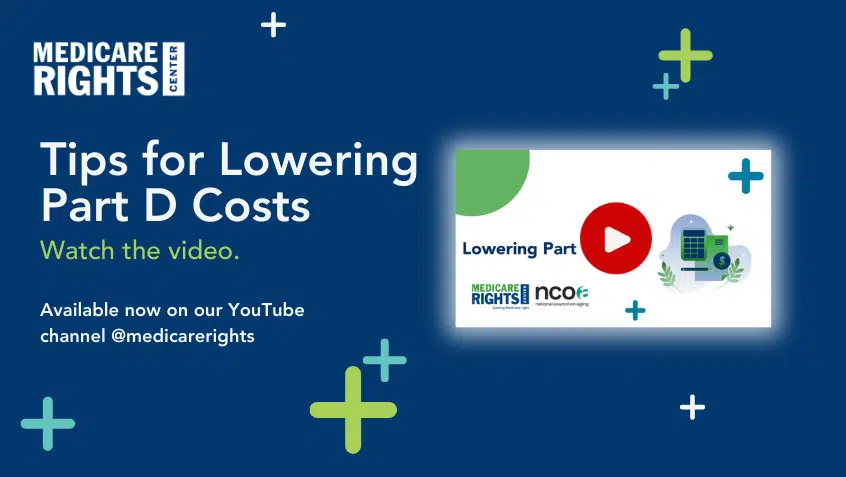Join Us Live for a Discussion on Medicare, Democracy, and the Future of Health Care
In New York, You Can Be the Boss of Your Health Care

Medicaid is a complicated program. Determining whether or not you are eligible is complicated. Qualifying for benefits is complicated. Making the program work with Medicare can be complicated. And often, even knowing what services you qualify for as a Medicaid recipient can be complicated.
One service in New York that many people are unfamiliar with is a community-based long term care service called Consumer Directed Personal Assistance, or CDPA. This program, which is becoming increasingly popular, is for people who need home care or nursing services at home; but, who do not want to work through an agency to have people they do not know sent to assist them.
In CDPA, the consumer, not an agency, is responsible for recruiting, hiring, training, supervising (including scheduling), and, if necessary, terminating their workers. What many like most about the program is that the workers can do anything that is on your plan of care – even if that is something that traditionally only a nurse would be able to do. This means no long waits for Tylenol because you have a headache, and no need for a nurse 24 hours a day if you are in need of ventilator services or suctioning.
New York will not let just anyone do this. To be able to use CDPA, a consumer has to be able to self-direct his or her own care. This means that he or she must be able to take charge of the plan of care, make decisions about implementing it, understand the impact of those decisions, and assume responsibility for them.
Importantly, this does not mean that the consumer has to make the same decisions a medical professional would make. The point of the program is that in many instances he or she will not make those same decisions. CDPA is based on the notion of the Dignity of Risk. The program lets you, as the consumer, make your own decisions, recognizing that some of those decisions will be bad ones. CDPA lets you fail – and learn from your mistakes. This is a central aspect of the dignity of risk.
What if the consumer cannot self-direct? Can they still use CDPA? Perhaps. There is an option for these consumers. They can use what is called a designated representative to manage the program for them. The designated representative becomes responsible as the employer: recruiting, hiring, training, supervising, and terminating workers. The designated representative can be any responsible adult (over 18) who is not a worker.
When hiring workers, called personal assistants, consumers can use almost anyone. Thanks to a recent law passed by the New York Legislature, parents of adult children (those over 21) can serve as a personal assistant. Family members such as siblings, nieces and nephews, and children can serve as a personal assistant. People have used neighbors, friends, and individuals hired through Craigslist, a local Church or other community resources. The only limits are those you impose yourself. Workers do not have to pass a background check. They must only be legally eligible to work in the United States, not been placed on the Medicaid exclusion list (not committed Medicaid fraud), complete a physical and have proof of vaccination.
So if the consumer is the employer, how does the worker get paid? New York acknowledges that consumers cannot do payroll for workers and wait for reimbursement. Therefore, the consumer or designated representative works with a third party called a fiscal intermediary, or FI.
The FI does not tell you who your workers are or can be. The FI should not even find workers for you. What they do, in simple terms, is act as the human relations department for the consumer. The FI processes the personal assistants you want to hire, taking care of tax paperwork, vaccination information, the physical, and a tuberculosis test.
The FI also makes sure that your workers are protected by the basics of employment. It provides worker’s compensation insurance, unemployment insurance, liability insurance, and more on your behalf. It pays employer taxes on your behalf for your workers.
The final task is that the FI processes payroll. In doing this, the FI will set the wage that you can pay your workers. This wage is based on the reimbursement that the FI gets from your health plan. The FI pays for the services it must provide. What is left is basically the wage of your worker.
CDPA is a great option for individuals who want to take more control over their long term care. It gives you control over who provides services and when they are provided, letting you live your life on your terms. It is not for everyone; however, it is increasingly proving to be an important program for thousands of people.
If you want any more information about this program, please visit us at cdpaanys.org. You may also e-mail [email protected] or call us at 518-813-9537.
[x_author title=”About the Author” author_id=”20″]
[x_line style=”border-top-width: 1px;”][x_feature_box title=”Share Your Experience” title_color=”” text_color=”” graphic=”icon” graphic_size=”100px” graphic_shape=”circle” graphic_color=”#ffffff” graphic_bg_color=”#2ecc71″ align_h=”left” align_v=”top” side_graphic_spacing=”20px” max_width=”none” graphic_icon=”comment”]If you would like to share your experience with your long-term care coverage, we want to hear from you! Email [email protected].[/x_feature_box]
The Medicare Rights Center’s Coalition to Protect the Rights of New York’s Dually Eligible (CPRNYDE) tracks changes New Yorkers with Medicare and Medicaid and long-term care experience, and we would like to hear your story. CPRNYDE works with consumers directly and ensures their voices are heard by policymakers. We are currently working with a group of consumers and caregivers, and we are reviewing the way care plans work and do not work. We aim to improve enrollee’s experiences with their care plans and care managers. If you would like to partake in this work, please let us know!
If your MLTC plan doesn’t seem to be in compliance with New York State requirements or the model contract, you can also contact the Independent Consumer Advocacy Network (ICAN), at (844) 614-8800. ICAN is the New York State Ombuds program for Managed Long Term Care and provides free and confidential assistance. They have counselors who are ready to assist you with any concerns.
Show Comments
We welcome thoughtful, respectful discussion on our website. To maintain a safe and constructive environment, comments that include profanity or violent, threatening language will be hidden. We may ban commentors who repeatedly cross these guidelines.
Help Us Protect & Strengthen Medicare
Donate today and make a lasting impact
More than 67 million people rely on Medicare—but many still face barriers to the care they need. With your support, we provide free, unbiased help to people navigating Medicare and work across the country with federal and state advocates to protect Medicare’s future and address the needs of those it serves.
The Latest
Most Read
Add Medicare to Your Inbox
Sign up to receive Medicare news, policy developments, and other useful updates from the Medicare Rights.
View this profile on InstagramMedicare Rights Center (@medicarerights) • Instagram photos and videos









